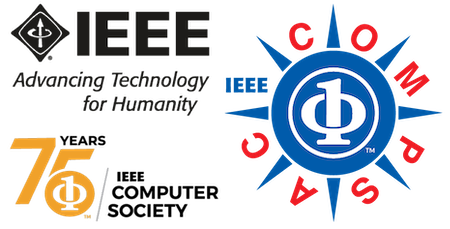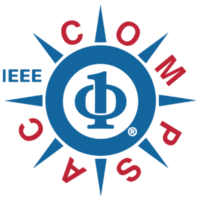The 9th IEEE International Workshop on Modeling & Verifying Distributed-Embedded Applications (MVDA 2021)
Call for Papers
MVDA 2021 aims to bring together researchers to the latest research ideas on development of distributed real-time and embedded systems.
Distributing applications and cloud service applications among distributed systems offer many potential benefits. However, implementing robust, efficient, and flexible distributed applications is more complex than building stand-alone applications. A significant portion of this complexity is due to the fact that developers must consider new design alternatives and must acquire many new skills. The problem of building such applications requires finding and orchestrating appropriate services that are frequently non trivial for a developer. This is due to the very large number of available and the different possibilities for constructing an application from matching services. We need an abstract view of the application using modeling approaches. In addition, we need a semantic description to retrieve and compose automatically and semantically this kind of applications. This abstraction allows in one hand the reuse of the elaborated application and on the other hand reduces the complexity and saves the users from the detail of the low level of the environment. Especially for distributed real-time embedded system, cost and quality requirements necessitate reuse of the functional software components for multiple deployment architectures. An important step is the allocation of software components to hardware. During this process the differences between the hardware and application software architectures must be reconciled. We need model-based techniques to resolve these differences and integrate hardware and software components. The system architecture serves as the underpinning based on which distributed real-time components can be generated. Proposed modeling approaches need a standard verification step against required properties to analyze and correct built applications as early as possible in order to avoid any costly maintenance delays due to runtime errors.
Papers may address one or more of the topics listed below. Unlisted but related topics are also acceptable, provided, they fit in one of the following main areas:
- Architecture and design principles for distributed and cloud service applications
- Architecture and design principles for distributed embedded applications
- Models and frameworks for distributed and cloud service applications.
- Methods, processes and patterns for developing distributed and cloud service applications.
- Ontology engineering and similarity.
- Model Driven Engineering, model and meta-model transformation.
- Intelligent semantic composition of cloud service applications based on machine learning.
- Modeling formalisms, languages and notations for cloud service applications and business processes.
- Formal specification, test and formal verification of distributed and cloud service applications.
- Refinement in Business Process models
- Elasticity and flexibility in Cloud service Business Processes.
Important Dates
Workshop papers due: 21 April 1 May 2021 (UPDATED)
Workshop paper notifications: 15 May 2021
Camera-ready and registration due: 31 May 2021
Authors are invited to submit original, unpublished research work, as well as industrial practice reports. Simultaneous submission to other publication venues is not permitted. In accordance with IEEE policy, submitted manuscripts will be checked for plagiarism. Instances of alleged misconduct will be handled according to the IEEE Publication Services and Product Board Operations Manual.
Please note that in order to ensure the fairness of the review process, COMPSAC follows the double-blind review procedure. Therefore we kindly ask authors to remove their names, affiliations and contacts from the header of their papers in the review version. Please also redact all references to authors’ names, affiliations or prior works from the paper when submitting papers for review. Once accepted, authors can then include their names, affiliations and contacts in the camera-ready revision of the paper, and put the references to their prior works back.
Formatting
Workshop papers are limited to 6 pages. Page limits are inclusive of tables, figures, appendices, and references. Workshop papers can add an additional 2 pages with additional page charges ($250USD/page).
Paper Templates
IEEE Paper templates are available in MS Word 2003 and LaTex. All submissions must use US 8.5×11 letter page format.
Note: If the submission link does not appear on EasyChair after logging-in, please click the above button again.
Workshop Organizers
Leila Ben Ayed, ENSI, University of la Manouba, Tunisia, LIPSIC Research Laboratory – FST – University of El Manar, Tunisia
Email: leila.benayed@ensi-uma.
Yousra Bendaly Hlaoui, LIPSIC Research Laboratory – FST – University of El Manar, Tunisia
Email: yousra.hlaoui@fst.utm.
Samir Ben Ahmed, LIPSIC Research Laboratory – FST – University of El Manar, Tunisia
Email: samir.benahmed@fst.utm.
Ahlem BenYounes, ENSIT, Tunisia
Email : benyounesahlem2017@gmail.com
Program Committee
Hong Zhu, Oxford Brookes University, UK
Cristina Seceleanu, Malardalen University, Sweden
Ali Mili, New Jersey Institute of Technology, USA
Riadh Robbana, National Institute of Applied Sciences and Technology (INSAT), University of Carthage, Tunisia
Mohamed Khalgui, National Institute of Applied Sciences and Technology (INSAT), University of Carthage,Tunisia
Olfa Mosbahi Khalgui, National Institute of Applied Sciences and Technology (INSAT), University of Carthage,Tunisia
Sumi Helal, University of Florida, USA
Tolga Ayav, Izmir Institute of Technology, Turkey
Lee Moon-Kun, Chonbuk National University, Korea
Eun-Sun Cho, Chungnam National University, Korea
Jamal Bentahar, Concordia University, Montreal, Canada
Ahmed Hadj Kacem, University of Sfax, Tunisia
Christine Choppy, Laboratory LIPN , University of Paris Nord, France
Mohamed Jmaiel, University of Sfax, Tunisia
Afef Kacem, Laboratory LaTICE, University of Tunis, Tunisia
Daniel Calegari Garcia, Instituto de Computacion Facultad de Ingenieria, Uruguay
SofieneTahar, Concordia University, Montreal, Canada
Mohamed Moez Yeddes, EcolePolytechnique de Montreal, University of Montreal, Canada
Fahima Hajjej, Princess Noura University, Riadh, KSA
John Mullins, Ecole Polytechnique de Montreal, University of Montreal, Canada
Issam Mabrouki, Tunisia Polytechnic School-University of Carthage, Tunisia
Lamia Zouhaier, ISAM, University of Mannouba, Mannouba, Tunisia
Imen Ben Fraj, ESC, , University of la Manouba, Mannouba, Tunisia
Salma Ayari, Laboratory LaTICE, , University of Tunis, Tunisia

